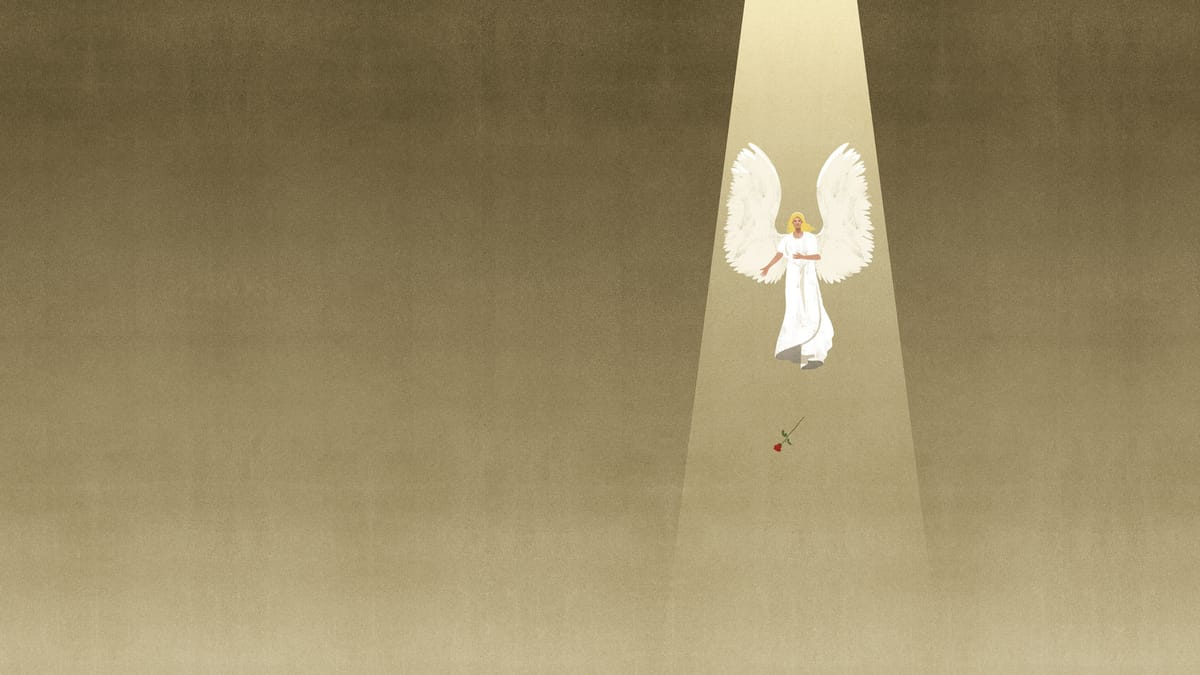In This Program
The Concert
Thursday, September 19, 2024, at 7:30pm
Friday, September 20, 2024, at 7:30pm
Saturday, September 21, 2024, at 7:30pm
Esa-Pekka Salonen conducting
Giuseppe Verdi
Messa da Requiem (1874)
Requiem
Dies irae
Offertorio
Sanctus
Agnus Dei
Lux aeterna
Libera me
Leah Hawkins soprano
Karen Cargill mezzo-soprano
Mario Chang tenor
Peixin Chen bass-baritone
San Francisco Symphony Chorus
Jenny Wong director
This program will be performed without intermission.
Lead support is provided by the Phyllis C. Wattis Fund for Guest Artists.
Program Notes
At a Glance
Messa da Requiem
Giuseppe Verdi
Born: October 9/10, 1813, in Roncole, near Busseto, Italy
Died: January 27, 1901, in Milan
Work Composed: 1873–74
SF Symphony Performances: First—April 1925. Alfred Hertz conducted with Helen Stanley, Mme. Charles Cahier, Rudolph Laubenthal, and Alexander Kipnis as soloists.
Most recent—October 2011. James Conlon conducted with the
San Francisco Symphony Chorus and Sondra Radvanovsky,
Dolora Zajick, Frank Lopardo, and Ain Anger as soloists.
Instrumentation: 4 vocal soloists (soprano, mezzo-soprano, tenor, and bass), chorus, 3 flutes (3rd doubling piccolo), 2 oboes, 2 clarinets, 4 bassoons, 4 horns, 4 trumpets (some offstage), 3 trombones, tuba, timpani, bass drum, and strings
Duration: About 85 minutes
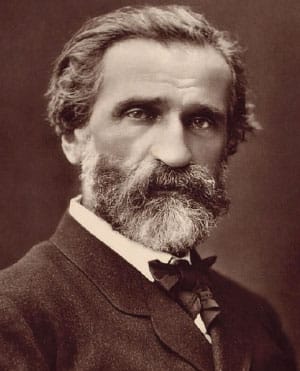
Despite its Christian framework, churchy fugues, and incense-steeped Latin trappings, Giuseppe Verdi’s Requiem can feel as secular as it does sacred. For long, delectable stretches, you might convince yourself that you’re listening to an opera. Indeed, the conductor Hans von Bülow dismissed Verdi’s Requiem as “his latest opera, in ecclesiastical vestments.” However, Johannes Brahms, usually Bülow’s close ally, disagreed. “Bülow has made an almighty fool of himself . . . Only a genius could have written such a work.”
Verdi himself was often accused of agnosticism. His second wife, Giuseppina Strepponi, described the composer’s spiritual outlook as a matter of temperament: “He’s the soul of honesty, he understands and feels every noble and delicate sentiment; yet for all that, [he] allows himself to be, I won’t say an atheist, but certainly not much of a believer, and all with a calm obstinance that makes you want to thrash him.”
No wonder this Requiem appeals to the nonreligious. Verdi humanizes it, bringing the drama back to individuals with enormous needs: for grace, for redemption, for eternal peace, or at least an escape from torment. The soloists are relatable in the same way that opera heroes and heroines are relatable: larger than life but fatally flawed.
Requiem Roots
In 1868, soon after the death of Gioachino Rossini, Verdi envisioned a compilation Requiem in honor of the late composer, with the various parts supplied by 13 of Italy’s leading composers. Verdi himself composed the final Libera me. It was not performed in 1869, as originally scheduled for the first anniversary of Rossini’s death, and in fact the compilation Requiem wasn’t premiered in its complete form until 1988.
Verdi was further moved in 1873 by the death of the Italian novelist and poet Allesandro Manzoni, a hero of the Risorgimento (the 19th-century Italian unification movement). He decided to revise his earlier Libera me and complete the remaining Requiem movements himself.
On June 3, 1873, Verdi wrote to his publisher, Ricordi, of his plans: “I too would like to demonstrate what affection and veneration I bore and bear to that Great Man who is no more . . . The Mass would have rather vast dimensions, and besides a large orchestra and a large chorus, it would also require. . . four or five principal singers.” He believed in the project so strongly that he spent his own money printing the music for the first performance, which he conducted, at the Church of San Marco, in Milan, on May 22, 1874. Verdi’s original title: “Requiem Mass for the anniversary of the death of Manzoni, 22 May 1874.” The four soloists had all been part of the cast for the European premiere of his opera Aïda the year before.
The Music
In the opening movement, an appeal on behalf of the recently departed for a peaceful rest, the chorus sings from the perspective of the mourners. Prefaced by austere low strings, the singers begin with the standard lines “Requiem aeternam dona eis, Domine” (Grant them eternal rest, oh Lord), which the chorus and orchestra intone with a hushed gravitas. Verdi translates the Lord’s promise of endless light into the luminous language of late Romanticism, turning a grief-laden hymn into an anthem. The four solo singers join the chorus and orchestra for a jubilant Kyrie eleison (Lord, have mercy).
The doomy and demonic second movement, the nine-part Dies irae (Day of Wrath), slashes and burns through a terrifying series of scenarios wherein the sinners individually confront their wretched souls. What awaits us after death? Eternal perdition, or a joy so perfect that the most celestial fugue can only approximate it? The Dies irae is based on a poem about Judgment Day commonly attributed to Thomas of Celano, a 13th-century Franciscan monk. In his setting of the medieval text, Verdi squires us through all the stages of grief. Against punishing bass drum and shrieking piccolo, and preceded by apocalyptic brass fanfares, the choristers describe the day that fire consumes the world.
The solo quartet sings the Offertorio, a light-rinsed, lullaby-like testament to the creator’s tender mercies. Here the four singers describe the holy radiance that God promises to bestow on Abraham and his descendants.
The Sanctus, a resplendent double fugue for two choruses, is sung from the angelic perspective: divinity casting a fond downward glance at the suffering humans. The angels’ joy seems almost explosive, in contrast to the anguish of the human characters: “Holy, holy, holy, Lord God of Sabaoth. Heaven and earth are full of your glory.”
Against spare orchestral accompaniment, the chorus, soprano, and later mezzo-soprano sing the Agnus Dei: “Lamb of God, who takes away the sins of the world, grant them rest.”
Sometimes a cappella and sometimes accompanied by shimmering strings and delicate winds, the mezzo-soprano, tenor, and bass deliver the luminous Lux aeterna (Eternal light). The violins are divided into six parts to enhance the celestial effect.
The soprano returns, with chorus, for the transcendent Libera me, which redirects our attention to the singular terrified sinner. On one level, you can appreciate the final movement as an aria, a gracefully emotive outpouring of bel canto splendor. At its climactic midpoint, the soprano’s high C rips through the chorus to remind us of her individual suffering. The chorus responds, a soothing balm made of light. A wild fugue develops, jagged with accidentals, propelled past terror into panic. Is the sinner consoled or even redeemed by this onslaught of beauty, or simply distracted from the potential terrors of the afterlife? Did she do enough—will we have done enough?—to atone?
Verdi respects us too much to speak for a God he wasn’t entirely sure even existed. He puts his faith in our collective capacity to figure it out for ourselves. The Requiem ends with the soprano and chorus crooning so softly that they might as well be whispering, “Libera me”: Deliver me.
Into what, who can say?
—René Spencer Saller
A version of this note previously appeared in the program book of the
Dallas Symphony.
Texts
Giuseppe Verdi: Messa da Requiem
Requiem
Requiem aeternam dona eis, Domine,
et lux perpetua luceat eis.
Te decet hymnus, Deus, in Sion,
et tibi reddetur votum in Jerusalem.
Exaudi orationem meam.
Ad te omnis caro veniet.
Requiem aeternam dona eis, Domine,
et lux perpetua luceat eis.
Kyrie eleison.
Christe eleison.
Kyrie eleison.
Dies irae
Dies irae, dies illa
Solvet saeclum in favilla,
Teste David cum Sibylla.
Quantus tremor est futurus
Quando judex est venturus
Cuncta structe discussurus!
Tuba mirum spargens sonum,
Per sepulchra regionum,
Coget omnes ante thronum.
Mors stupebit et natura
Cum resurget creatura
Judicanti responsura.
Liber scriptus proferetur,
In quo totum continetur,
Unde mundus judicetur.
Judex ergo cum sedebit,
Quidquid latet apparebit,
Nil inultum remanebit.
Quid sum miser tunc dicturus?
Quem patronum rogaturus,
Cum vix justus sit securus?
Rex tremendae majestatis,
Qui salvandos salvas gratis,
Salva me, fons pietatis.
Recordare, Jesu pie,
Quod sum causa tuae viae,
Ne me perda illa die.
Quaerens me, sedisti lassus,
Redemisti crucem passus;
Tantus labor non sit cassus.
Juste Judex ultionis,
Donum fac remissionis
Ante diem rationis.
Ingemisco tamquam reus:
Culpa rubet vultus meus.
Supplicanti parce Deus.
Qui Mariam absolvisti
Et latronem exaudisti,
Mihi quoque spem dedisti.
Preces meae non sunt dignae,
Sed to bonus fac benigne,
Ne perenni cremer igne.
Inter oves locum praesta
Et ab haedis me sequestra,
Statuens in parte dextra.
Confutatis maledictis,
Flammis acribus addictis,
Voca me cum benedictis.
Oro supplex at acclinis,
Cor contritum quasi cinis,
Gere curam mei finis.
Lacrymosa dies illa
Qua resurget ex favilla
Judicandus homo reus.
Huic ergo parce, Deus,
Pie Jesu Domine:
Dona eis requiem. Amen.
Offertorio
Domine Jesu Christe, Rex gloriae,
libera animas omnium fidelium defunctorum
de poenis inferni et de profundo lacu:
libera eas de ore leonis,
ne absorbeat eas Tartarus, ne cadant in obscurum.
Sed signifer sanctus Michael
repraesentet eas in lucem sanctam,
Quam olim Abrahae promisisti
et semini eius.
Hostias et preces tibi, Domine, laudis offerimus.
Tu suscipe pro animabus illis
quarum hodie memoriam facimus.
Fac eas, Domine,
de morte transire ad vitam.
Quam olim Abrahae promisisti
et semini eius.
Libera animas omnium fidelium defunctorum
de poenis inferni.
Fac eas de morte transire ad vitam.
Sanctus
Sanctus, sanctus, sanctus, Domine Deus Sabaoth.
Pleni sunt coeli et terra gloria tua.
Hosanna in excelsis.
Benedictus qui venit in nomine Domini.
Hosanna in excelsis.
Agnus Dei
Agnus Dei, qui tollis peccata mundi:
dona eis requiem.
Lux aeterna
Lux aeterna luceat eis, Domine,
cum Sanctis tuis in aeternum,
quia pius es.
Requiem aeternam dona eis, Domine,
et lux perpetua luceat eis.
Libera me
Libera me, Domine, de morte aeterna,
in die illa tremenda quando coeli movendi sunt et terra;
dum veneris judicare saeculum per ignem.
Tremens factus sum ego et timeo,
dum discussio venerit atque ventura ira,
quando coeli movendi sunt et terra.
Dies irae, dies illa calamitatis et miseriae,
dies magna et amara valde.
Requiem aeternam dona eis, Domine,
et lux perpetua luceat eis,
Libera me, Domine, de morte aeterna,
in die illa tremenda,
quando coeli movendi sunt et terra;
dum veneris judicare saeculum per ignem.
Libera me.
Requiem
Grant them eternal rest, oh Lord,
and let everlasting light shine upon them.
To you, oh God, praise is due in Zion,
and homage will be done in Jerusalem.
Hear my prayer.
Unto you all flesh shall come.
Grant them eternal rest, oh Lord,
and let everlasting light shine upon them.
Lord, have mercy upon us.
Christ, have mercy upon us.
Lord, have mercy upon us.
Dies irae
The Day of Wrath, that day
shall dissolve the world in ashes,
as David and the Sibyl foretold.
What trembling shall there be
when the Judge shall come
who shall thresh out all completely!
The trumpet, scattering a wondrous sound
through the tombs of all lands,
shall drive all unto the throne.
Death and Nature shall be astounded
when creation rises again
to answer the Judge.
A written book shall be brought forth,
in which shall be contained all
for which the world shall be judged.
And therefore when the Judge shall sit,
what is hidden shall be manifest,
and nothing shall remain unavenged.
What shall I say in my misery?
Whom shall I ask to be my advocate,
when even the righteous are fearful?
King of awesome majesty,
who freely saves the redeemed,
save me, oh fount of mercy.
Recall, merciful Jesus,
that I am the cause of your journey,
do not lose me on that day.
Seeking me, you sat down weary;
you redeemed me, suffering on the cross;
let it not have been in vain.
Oh Just Judge of vengeance,
give the gift of remission
before the day of reckoning.
I groan as one guilty:
my face blushes at my sin.
Spare your supplicant, oh God.
You who absolved Mary
and heard the thief’s prayer
have given me hope also.
My prayers are not worthy,
but show mercy, good Lord,
lest I burn in everlasting fire.
Give me a place among your sheep
and put me apart from the goats,
setting me on the right hand.
When the damned are confounded
and consigned to sharp flames,
call me with the blessed.
I pray, kneeling in supplication,
a heart contrite as ashes,
take my ending into your care.
Lamentable is the day
on which the guilty shall arise
from the ashes to be judged.
Spare this one, oh God.
Merciful Lord Jesus:
Grant them rest. Amen.
Offertorio
Oh Lord, Jesus Christ, King of Glory,
deliver the souls of all the departed faithful
from the torments of hell and from the bottomless pit;
deliver them from the mouth of the lion,
lest Tartarus swallow them, lest they fall into the darkness.
But let Saint Michael the standard-bearer
bring them forth into the holy light,
which you once promised to Abraham
and his seed.
To you, oh Lord, we give our offerings and prayers with praises.
Receive them for those souls
whom we commemorate today.
Make them, oh Lord,
pass from death to life,
which you once promised
to Abraham and his seed.
Deliver the souls of all the departed faithful
from the torments of hell.
Make them pass from death to life.
Sanctus
Holy, holy, holy, Lord God of Sabaoth.
Heaven and earth are full of your glory.
Hosanna in the highest.
Blessed is he who comes in name of the Lord.
Hosanna in the highest.
Agnus Dei
Lamb of God, who takes away the sins of the world,
grant them rest.
Lux aeterna
Let everlasting light shine on them, oh Lord,
with your saints forever,
for you are merciful.
Libera me
Grant them eternal rest, oh Lord,
and let everlasting light shine upon them.
Deliver me, oh Lord, from eternal death
in that awful day when the heavens and the earth shall be moved;
when you will come to judge the world by fire.
I tremble, and I fear
the trial and the wrath to come,
when the heavens and the earth shall be moved.
A day of wrath, that day of calamity and woe,
a great day and bitter indeed.
Grant them eternal rest, oh Lord,
and let everlasting light shine upon them.
Deliver me, oh Lord, from eternal death
in that awful day
when the heavens and the earth shall be moved;
when you will come to judge the world by fire.
Deliver me.
About the Artists
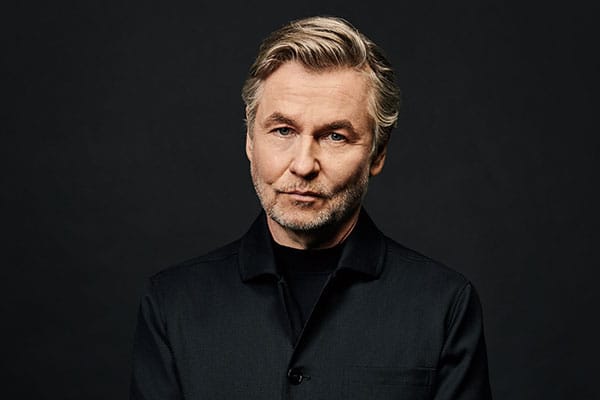
Esa-Pekka Salonen
Music Director
Known as both a composer and conductor, Esa-Pekka Salonen is the Music Director of the San Francisco Symphony. He is the Conductor Laureate of the Los Angeles Philharmonic, where he was Music Director from 1992 until 2009, the Philharmonia Orchestra, where he was Principal Conductor & Artistic Advisor from 2008 until 2021, and the Swedish Radio Symphony Orchestra. As a member of the faculty of Los Angeles’s Colburn School, he directs the preprofessional Negaunee Conducting Program. Salonen cofounded, and until 2018 served as the Artistic Director of, the annual Baltic Sea Festival, which invites celebrated artists to promote unity and ecological awareness among the countries around the Baltic Sea.
Salonen has an extensive and varied recording career. Releases with the San Francisco Symphony include recordings of Kaija Saariaho’s opera Adriana Mater, Bartók’s piano concertos, as well as spatial audio recordings of several Ligeti compositions. Other recent recordings include Strauss’s Four Last Songs, Bartók’s The Miraculous Mandarin and Dance Suite, and a 2018 box set of Mr. Salonen’s complete Sony recordings. His compositions appear on releases from Sony, Deutsche Grammophon, and Decca; his Piano Concerto, Violin Concerto, and Cello Concerto all appear on recordings he conducted himself.
Esa-Pekka Salonen is the recipient of many major awards. Most recently, he was awarded the 2024 Polar Music Prize. In 2020, he was appointed an honorary Knight Commander of the Order of the British Empire (KBE) by the Queen of England.

Leah Hawkins
Leah Hawkins is the recipient of the Metropolitan Opera’s 2024 Beverly Sills Artist Award and a graduate of their Lindemann Young Artist Development Program. Additional honors include the Dallas Symphony’s Women in Classical Music Career Advancement Award and a Richard Tucker Foundation Career Grant.
Highlights of Hawkins’s 2024–25 season include returns to the Metropolitan Opera to cover Leonora in Il trovatore and Arizona Opera for her title role debut in Aïda. On the concert stage, she returns to the Philadelphia Orchestra for Beethoven’s Symphony No. 9, debuts with the Apollo Orchestra in a concert of Verdi arias, and returns to the Park Avenue Armory for a self-curated recital entitled C’est ainsi que tu es (That is How You Are). She makes her San Francisco Symphony debut with this program.
Last season, Hawkins appeared at the Met in Verdi’s Requiem, conducted by Yannick Nézet-Séguin. Other engagements included Louise/Betty in Anthony Davis’s X: The Life and Times of Malcolm X with both the Met and Seattle Opera. This past spring, she made her role and house debut at Dutch National Opera as Giorgetta in Il tabarro. On the concert stage, she performed Dvořák’s Requiem with the American Symphony at Carnegie Hall.
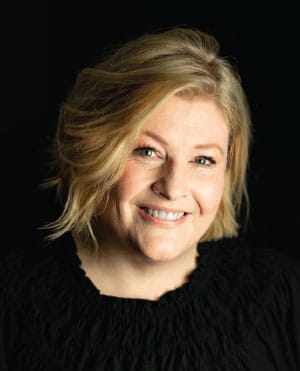
Karen Cargill
Karen Cargill was nominated for a Grammy Award as part of the Metropolitan Opera’s recording of Dialogues of the Carmelites and in 2018 was awarded an honorary doctorate from the Royal Conservatoire of Scotland. Her operatic roles include Geneviève in Pelléas et Mélisande, Judith in Bluebeard’s Castle, Mère Marie in Dialogues of the Carmelites, Dryade in Ariadne auf Naxos, Dido in Dido and Aeneas, and Anna in Les Troyens. As a Wagnerian, she regularly sings Erda in Das Rheingold and Siegfried, Fricka in Das Rhinegold, Brangäne in Tristan und Isolde, Waltraute in Götterdämmerung, and Magdalena in Die Meistersinger von Nürnberg.
Cargill has performed at Carnegie Hall, the Kennedy Center, Wigmore Hall, and the Concertgebouw, and regularly gives recitals for BBC Radio 3. With pianist Simon Lepper, she recorded a critically acclaimed recital of songs by Alma and Gustav Mahler and previously recorded Berlioz Les nuits d’été and La mort de Cléopâtre with the Scottish Chamber Orchestra, both for Linn records. She is a patron of the National Girls’ Choir of Scotland and sang in the National Service of Thanksgiving and Dedication for King Charles III following his coronation last year. She makes her San Francisco Symphony debut with this program.

Mario Chang
Mario Chang has appeared at the Metropolitan Opera as Nemorino in L’elisir d’amore, the Italian Tenor in Der Rosenkavalier, Arturo in Lucia di Lammermoor, and the Fourth Squire in Parsifal. He has also performed at Los Angeles Opera as Rodolfo in La bohème and as Ismaele in Nabucco; at Santa Fe Opera as Edgardo in Lucia di Lammermoor; and with Washington National Opera, Atlanta Opera, and Opera Frankfurt as Alfredo in La Traviata. He made his Hollywood Bowl debut as Cassio in Otello with the Los Angeles Philharmonic, and has appeared at Carnegie Hall.
Chang was a member of the Lindemann Young Artist Devel-opment Program at the Met and holds an advanced diploma from the Juilliard School. His awards include first prize, zarzuela prize, and audience favorite at the 2014 Operalia Competition, as well as first prize, Plácido Domingo Prize, and Amigos de Sabadell Prize in the Francisco Viñas Competition. A native of Guatemala, he is the founder and director of Querido Arte Ópera de Guatemala, the first opera company in the country, and was appointed an ambassador of peace and culture by the Guatemalan government. He made his San Francisco Symphony debut in July 2016.
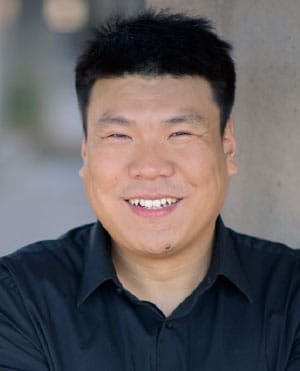
Peixin Chen
Peixin Chen has sung Sarastro in The Magic Flute at the Metropolitan Opera, Commendatore in Don Giovanni with LA Opera, Fasolt in Das Rheingold at Seattle Opera and Dallas Opera, Colline in La bohème with Washington National Opera, and he made his Lyric Opera of Chicago debut in Verdi’s Don Carlos, singing the Monk and covering Philippe II. Other appearances include Don Giovanni, Boris Godunov, and Turandot at the Met and Rigoletto at Santa Fe Opera. He made his European debut at Festival d’Aix en Provence in Rise and Fall of the City of Mahagonny, conducted by Esa-Pekka Salonen, and sang the General in Peter Sellars’s production of Prokofiev’s The Gambler at the Salzburg Festival. Chen makes his San Francisco Symphony debut with this program.
This season, Chen returns to the Met as Sarastro and to Lyric Opera of Chicago as Colline. Other upcoming appearances include a debut as Dulcamara in L’elisir d’amore at Florida Grand Opera and Sparafucile in Rigoletto at LA Opera. He is a graduate of the Houston Grand Opera Studio, and appeared with Houston Grand Opera in Verdi’s Requiem, Turandot, Il barbiere di Siviglia, Le nozze di Figaro, Norma, Aïda, Il trovatore, The Magic Flute, and Die Walküre, among others.

Jenny Wong
Jenny Wong is Chorus Director of the San Francisco Symphony, as well as the associate artistic director of the Los Angeles Master Chorale. Recent conducting engagements include the Los Angeles Philharmonic Green Umbrella Series, Los Angeles Opera Orchestra, the Industry, Long Beach Opera, Pasadena Symphony and Pops, Phoenix Chorale, and Gay Men’s Chorus of Los Angeles.
Under Ms. Wong’s baton, the Los Angeles Master Chorale’s performance of Frank Martin’s Mass was named by Alex Ross one of ten “Notable Performances and Recordings of 2022” in the New Yorker. In 2021 she was a national recipient of Opera America’s inaugural Opera Grants for Women Stage Directors and Conductors. She has conducted Peter Sellars’s staging of Orlando di Lasso’s Lagrime di San Pietro, Sweet Land by Du Yun and Raven Chacon, and Schoenberg’s Pierrot Lunaire and Kate Soper’s Voices from the Killing Jar with Long Beach Opera in collaboration with WildUp. She has prepared choruses for the Los Angeles Philharmonic, including for a recording of Mahler’s Symphony No. 8 that won a 2022 Grammy Award for Best Choral Performance. She has also prepared choruses for the Chicago Symphony, Los Angeles Chamber Orchestra, and Music Academy of the West.
A native of Hong Kong, Ms. Wong received her doctor of musical arts and master of music degrees from the University of Southern California and her undergraduate degree in voice performance from the University of Illinois, Urbana-Champaign. She won two consecutive world champion titles at the World Choir Games 2010 and the International Johannes Brahms Choral Competition 2011.
Supertitles: Ron Valentino
San Francisco Symphony Chorus
The San Francisco Symphony Chorus was established in 1973 at the request of Seiji Ozawa, then the Symphony’s Music Director. The Chorus, numbering 32 professional and more than 120 volunteer members, now performs more than 26 concerts each season. Louis Magor served as the Chorus’s director during its first decade. In 1982 Margaret Hillis assumed the ensemble’s leadership, and the following year Vance George was named Chorus Director, serving through 2005–06. Ragnar Bohlin concluded his tenure as Chorus Director in 2021, a post he had held since 2007. Jenny Wong was named Chorus Director in September 2023.
The Chorus can be heard on many acclaimed San Francisco Symphony recordings and has received Grammy Awards for Best Performance of a Choral Work (for Orff’s Carmina burana, Brahms’s German Requiem, and Mahler’s Symphony No. 8) and Best Classical Album (for a Stravinsky collection and for Mahler’s Symphony No. 3 and Symphony No. 8).
SOPRANOS
Elaine Abigail
Naheed Attari
Sylvia V. Baba
Morgan Balfour*
Arlene Boyd
Olivia T. Brown
Helen J. Burns
Sarita Nyasha Cannon
Phoebe Chee*
Mun-Wai Chung
Lauren Diez
Andrea Drummond
Tonia D’Amelio*
Elizabeth Emigh
Cara Gabrielson*
Susanna Gilbert
Julia Hall
Ashley Hecht
Hyun Suk Jang
Betsy Johnsmiller
Kate Juliana
Jocelyn Queen Lambert
Kyounghee Lee
Ellen Leslie*
Jennifer Mitchell*
Bethany R. Procopio
Aimée Puentes*
Shroothi P. Ramesh
Kelly Ryer
Natalia Salemmo*
Rebecca Shipan
Elizabeth L. Susskind
Sigrid Van Bladel
Sarah Vig
Lauren Wilbanks
ALTOS
Carolyn Alexander
Terry A. Alvord*
Monica Lynn Baruch
Emily Pantaleoni Bernier
Melissa Butcher
Celeste Camarena
Enrica Casucci
Carol Copperud
Corty Fengler
Sonia Gariaeff*
Stacey L. Helley
Amy L. Hespenheide
Emily (Yixuan) Huang
Kelsey M. Ishimatsu Jacobson
Hilary Jenson
Cathleen Josaitis
Gretchen Klein
Joyce Lin-Conrad
Margaret (Peg) Lisi*
Brielle Marina Neilson*
Kimberly J. Orbik
Lindsay Marie Rader
Linda J. Randall
Meredith Riekse
Celeste Riepe
Jeanne Schoch
Sandy Sellin
Dr. Meghan Spyker*
Kyle S. Tingzon*
Mayo Tsuzuki
Makiko Ueda
Merilyn Telle Vaughn*
Heidi L. Waterman*
Hannah J. Wolf
TENORS
Paul Angelo
Alexander P. Bonner
Todd Bradley
Seth Brenzel*
Dean Christman
Daniel J. Costa
Scott Dickerman
Thomas L. Ellison
Christian Emigh
Elliott JG Encarnación*
Sam Faustine*
Patrick Fu
Ron Gallman
Kevin Gibbs*
Alec Jeong
Drew Kravin
James Lee
Benjamin Liupaogo*
Benjamin S. Lorenzoni
Joachim Luis*
Monty M. Maisano
Justin Farrell Marsh
Ryan S. Peterson
Darita Seth*
Tetsuya Taura
John A. Vlahides
David von Bargen
Nicholas Weininger
Jack Wilkins*
Weichen Winston Yin
John Paul Young
Jakob Zwiener
BASSES
Matthew Ahn
Simon Barrad*
Josh Bozich
Phil Buonadonna
Robert Calvert
Sean Casey
Adam Cole*
Noam Cook
Malcolm Gaines
Rick Galbreath
Richard M. Glendening
Rob Lloyd Huber
Bradley A. Irving
Roderick Lowe
Tim Marson
Richard Mix*
Clayton Moser*
Case Nafziger
Julian Nesbitt
Chengrui Pan
Bradley C. Parese
Jess Green Perry
Mark E. Rubin
Timothy Echavez Salaver
Chung-Wai Soong*
Storm K. Staley
Michael Taylor*
Connor Tench
David Varnum*
Nick Volkert*
Jenny Wong
Chorus Director
John Wilson
Rehearsal Accompanist
*Member of the American Guild of Musical Artists

